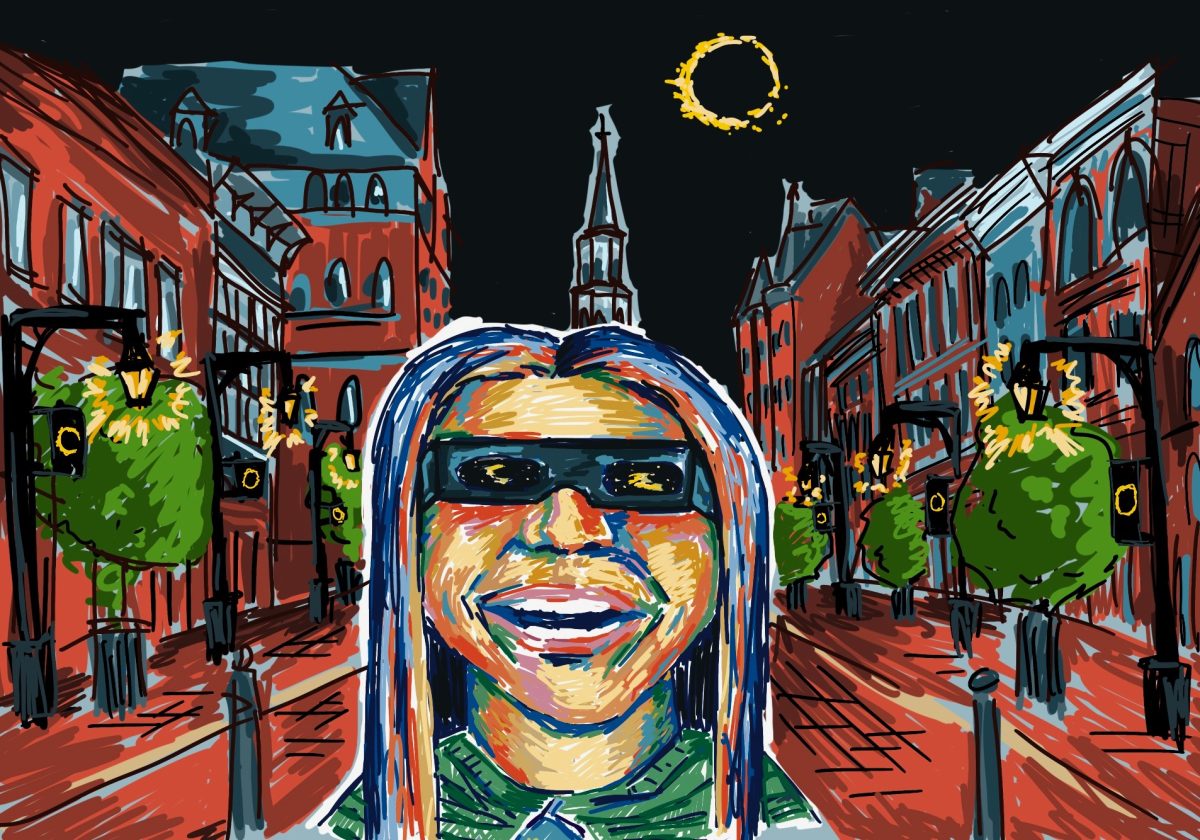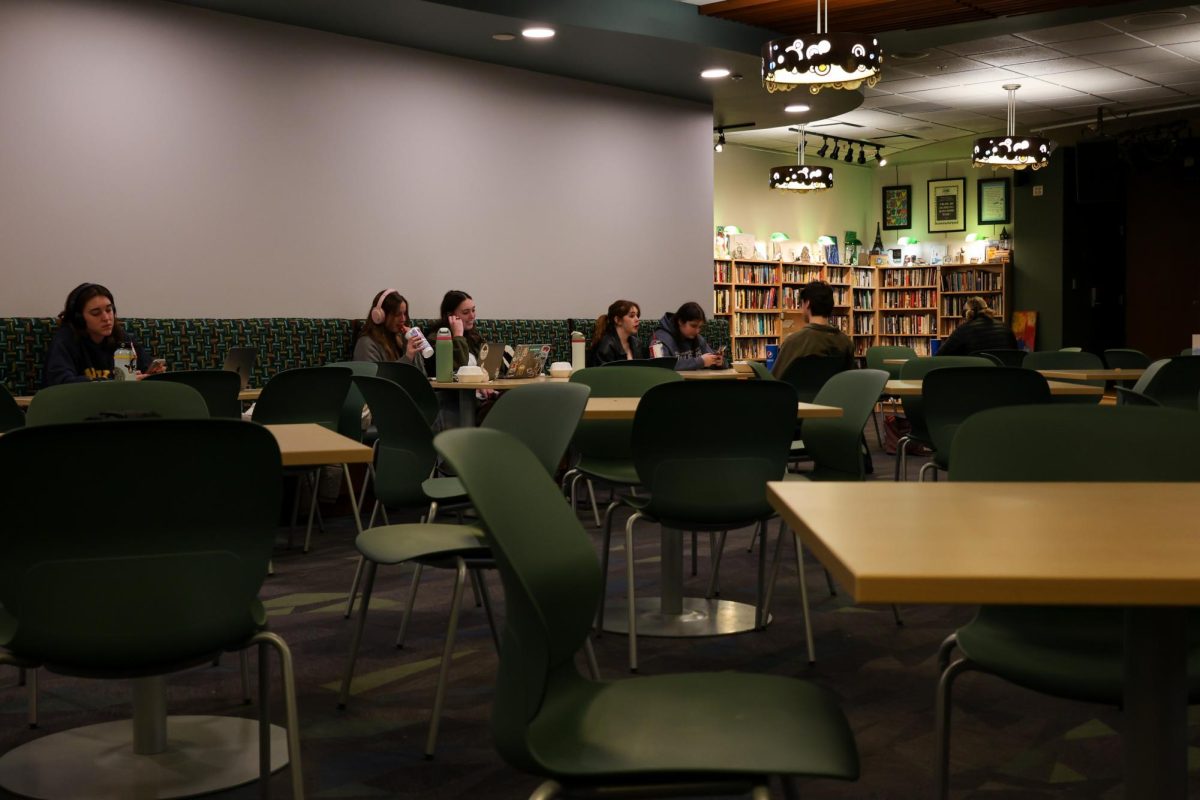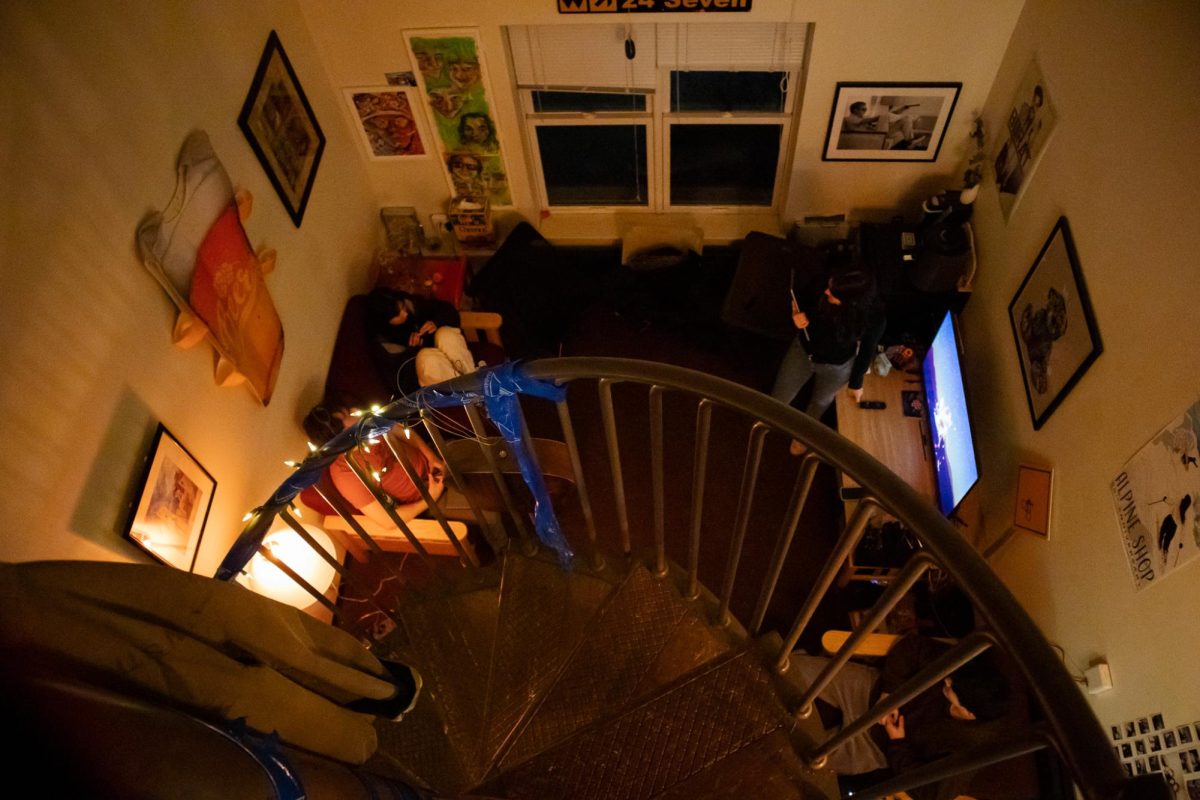As casual sex has become the norm on college campuses, long gone are the days of Ògoing steadyÓ and engaging in monogamous relationships.
In an effort to help students understand the significance of love, UVMÕs Catholic Center has wrapped up its Freedom to Love series.
This five-part video series aims to promote strong and healthy relationships by emphasizing the separation between love and lust and the significance of human sexuality.
ÒI think thereÕs a lot of confusion in college culture about relationships and what love is,Ó Director of the Catholic Center the Rev. Jon Schnobrich said.
Casual sex is prevalent on college campuses as students constantly question themselves and their actions during early adulthood, he said.
According to a study conducted by sociologist Paula England of Stanford University from 2005-2011, 72 percent of college men and women reported having one or more hookups by their senior year, USA Today reported.
But given what the term Òhooking upÓ can entail, it can be difficult to adequately define, Diana Gonzalez of Living Well said.
Ê
ÒFrom a research perspective, a hookup is a sexual interaction that can happen one or multiple times with someone that you are not in a committed relationship with,Ó she said. ÒThatÕs something that research and UVM students support.Ó
Though hooking up seems to be ingrained in campus life, Gonzalez suggests that students tend to exaggerate the sex lives of their peers.
ÒWe know that on a college campus, people overestimate the amount of sexual partners people have and how often they have sex,Ó she said.
According to a 2011 study from the National Center for Health Statistics, the percentages of celibate women and men aged 18-24 is actually increasing.
Whether or not college hookups are on the rise, members of the Catholic Center still feel that many students seem to be missing something when it comes to love.
Students sometimes feel the need to fill voids in their lives in ineffective ways, like drugs and alcohol, Schnobrich said.
ÒIf people on campus are hurting or feeling empty or unloved, thereÕs a reason for that,Ó he said. ÒAnd no amount of sex, drugs, alcohol or entertainment, is going to solve thatÉbecause we are made for eternal love.Ó
The Catholic Center hopes to guide students on this journey to love and inner happiness by promoting authentic love and self-reflection.
First year Quinn Parker attended a few of the Freedom to Love screenings and said many people he encounters place too much importance on physical, rather than inner beauty.
ÒBeauty comes and goes, but the beauty of the spirit stays forever,Ó Parker said.
First year Caitlyn Irving agreed.
ÒI think people are confused. [Students] have no idea what love is or what relationships are for,Ó Irving said.
Though the journey to love can seem challenging at first, Schnobrich said itÕs a life-long process.
ÒItÕs one thing to understand this, itÕs another to live it,Ó Schnobrich said. ÒIt does demand that youÕre honest with yourself and that youÕre not afraid of looking inside and seeing what you may find.Ó












